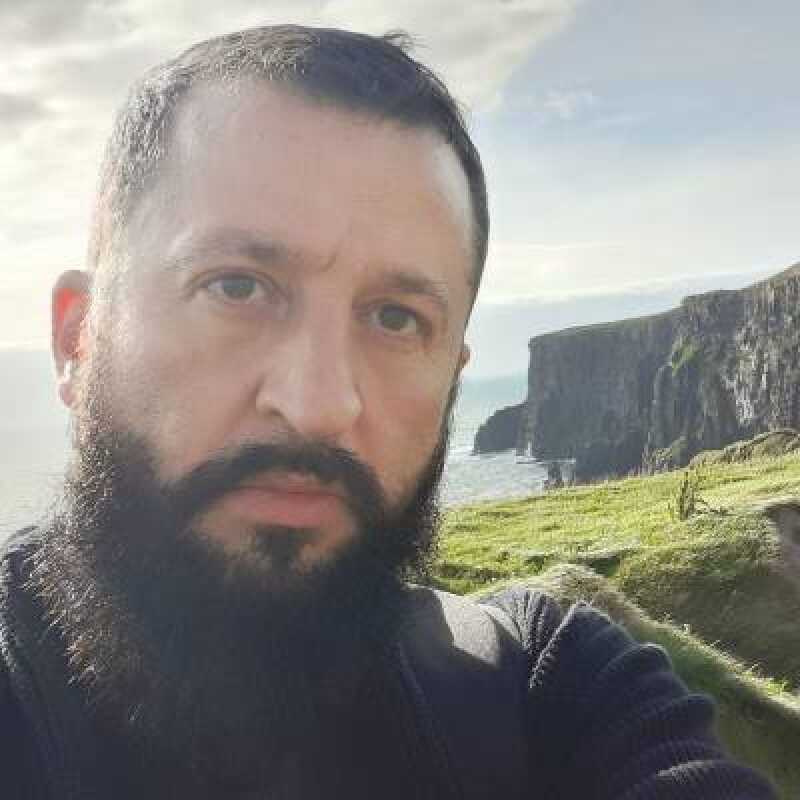- University of Kent
- Arts at Kent
- People
- Dr Maurizio Cinquegrani
Dr Maurizio Cinquegrani


Originally from Venice, Dr Maurizio Cinquegrani moved to England in 2005. He completed a PhD in Film Studies at King's College London with a thesis on early British cinema and urban space (2010). He also has an MA in Contemporary Cinema Cultures from King's College London and a BA in Film Studies from the University of Bologna.
In 2011, Maurizio left the role of librarian at the British Museum and began teaching full time at London Metropolitan University, Birkbeck College, and King's College London. In the same year, he participated in the Camden Town Group in Context research project at Tate Britain with a contribution looking at the relationship between early film practices and the work of Walter Sickert, Malcolm Drummond and other artists.
In 2012, he worked as filmic cartographer at the University of Liverpool in an AHRC-funded research project entitled, 'Cinematic Geographies of Battersea: Urban Interface & Site-Specific Spatial Knowledge'. In the summer of 2012, he joined Film at the University of Kent, and since then he has been a leading researcher and representative of the University, both regionally and internationally; he has also taught and supervised a variety of students and projects in Film.
Maurizio has held the roles of Head of Film and Media, School Director of Graduate Studies, School Director of Education, Faculty Director of Internationalisation, and Deputy Dean (Student Experience). He also served as visiting lecturer at the Taipei National University of the Arts (Taiwan) and the Poznań University of Technology (Poland). In 2018 he was accepted as Fellow of the Royal Geographical Society (2018-2023) on account of his involvement in geography through research and publications.
Maurizio's research primarily investigates the relationship between film, space and memory. He has recently published a monograph titled Film, Hot War Traces and Cold War Spaces (EUP, 2022); this book explores the relationship between fiction and documentary and a series of sites of memory and historical events of the period 1914-1989.
Film, Hot War Traces and Cold War Spaces follows his second book, Journey to Poland: Documentary Landscapes of the Holocaust (EUP, 2018), a monograph on the cinematic geographies of the Holocaust focusing on the place of film practices in relation to other ways to organise, memorialise, monumentalise and preserve specific environments connected with the Holocaust. The book explores a diverse range of films, including archival footage from the 1940s and post-war documentaries, with a transnational focus on both Polish films and international productions filmed in Poland. Maurizio 's work on film and the Holocaust has been published in the journals Holocaust Studies and Apparatus as well as in edited collections in English, Russian and Spanish.
His first monograph, Of Empire and the City: Remapping Early British Cinema (Peter Lang, 2014), explores the cinematic representation of urban spaces in films produced in Britain during the period 1895-1914. Employing a historical and geographical methodology which equally takes into account studies of early film, of cinema and the city, of British urban history, and of the history of the British Empire, he concentrates on actuality films of London, Manchester and Liverpool, Glasgow and Edinburgh, Dublin and the colonial cities.
Maurizio's articles and chapters exploring the relationship between British cinema and the city have appeared in Nineteenth-Century Contexts, Early Popular Visual Culture, Journal of British Cinema and Television, and the anthology, The City and the Moving Image: Urban Projections. He has also published articles on Ingmar Bergman, Scandinavian cinema in the silent era and the philology of film.
Maurizio's essay films Aran Diary (2023) and Formosa 228 (2024) have been selected at numerous international film festivals.
Maurizio teaches primarily in the areas of film history, world cinema and documentary film. He always aims to provide the opportunity for both undergraduate and postgraduate students to take an active part in research-led learning.
In his courses, students are exposed to the ideas of a diverse range of scholars, learn to carry out their own research and experience enquiry-based learning. Students are invited to take ownership of their scholarly work and, while they gain more independence, they are supported by a research-active lecturer whose real-life research experience informs the content of the course.
Maurizio is interested in supervising doctoral students in a broader range of projects based on film history and cinema cultures. Specifically, he supervises theses related to the study of film and space, both from an historical and a theoretical perspective.
He welcomes proposals on early films, documentary cinema, and on the relationship between memory, cinema and the city, both with a focus on urban cultures and built environment. He is particularly interested supervising projects related to film and the two world wars, the Holocaust and the Cold War and also supervises Practice as Research doctoral projects related to these themes.
Loading publications...
Showing of total publications in the Kent Academic Repository. View all publications